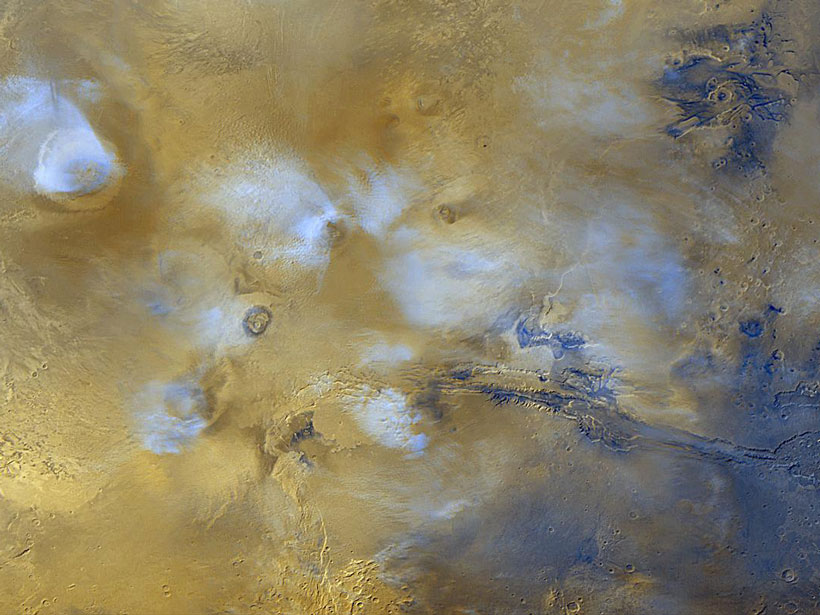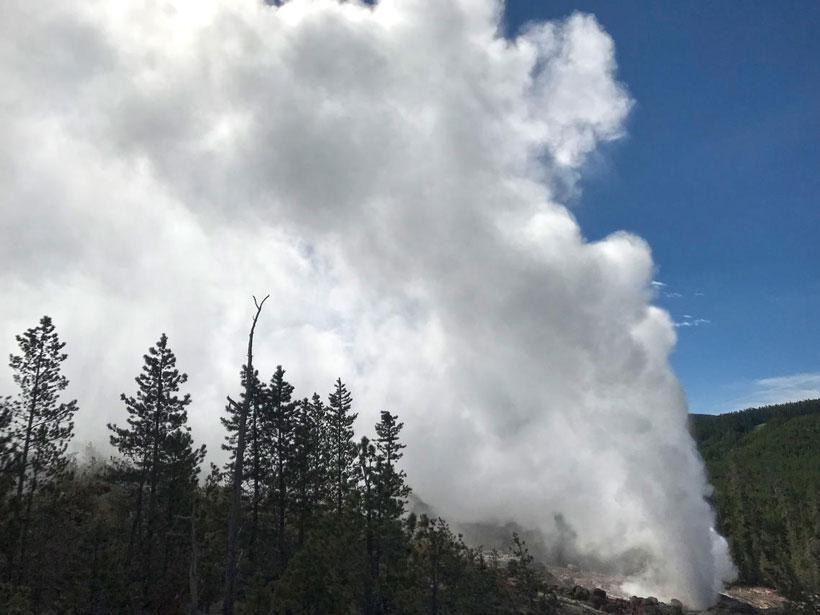Las lunas oceánicas del sistema solar exterior nos dan pistas sobre volcanes de hielo, fuentes hidrotermales, y la tentadora posibilidad de habitabilidad.
Erik Klemetti
Erik Klemetti is an associate professor at Denison University and has been there since 2009. He teaches in both the Geosciences and Narrative Journalism programs including classes such as Petrology & Volcanology, Geology of the Solar System, Rocks & Minerals, and Science Writing for the Public. His research examines how magma is stored and generated at volcanoes such as Lassen Peak, Mt. Hood, and the Tumalo Volcanic Center in Oregon. Klemetti writes for Rocky Planet, a blog about geology and Discover Magazine; he has previously written for Wired and the Washington Post. He has also regularly appeared on CNN International, NPR, BBC, and CBC to discuss volcanoes. He has a B.A. in geosciences and history from Williams College and a Ph.D. in geology from Oregon State University.
Cryovolcanism’s Song of Ice and Fire
Ocean moons of the outer solar system hint at ice volcanoes, hydrothermal vents, and the tantalizing chance of habitability.
This One Simple Trick Helps Us Understand How Much Water Is in Martian Lavas
Understanding how much water is in Martian magma is vital for understanding whether the Red Planet had seas in its early history.
Tiny Volcanoes Are a Big Deal on Mars
Cinder cones and fissure vents provide clues about the evolution of the Red Planet’s mantle and crust.
Are Geysers a Signal of Magma Intrusion Under Yellowstone?
Steamboat Geyser, the world’s tallest, is in the midst of one of its largest periods of activity. Is it linked to new magma intruding under the Yellowstone caldera?
Are We Seeing a New Ocean Starting to Form in Africa?
Although shallow magma storage at Erta Ale volcano hints at a rift-to-ridge transition, the tectonic future of the Afar region is far from certain.
Role of Continental Arcs in Global Carbon Dioxide Emissions
Continental arcs are a major player in global carbon dioxide emissions, but quantifying that relationship is hard. A new study accepts the challenge on a global scale over 750 million years.







